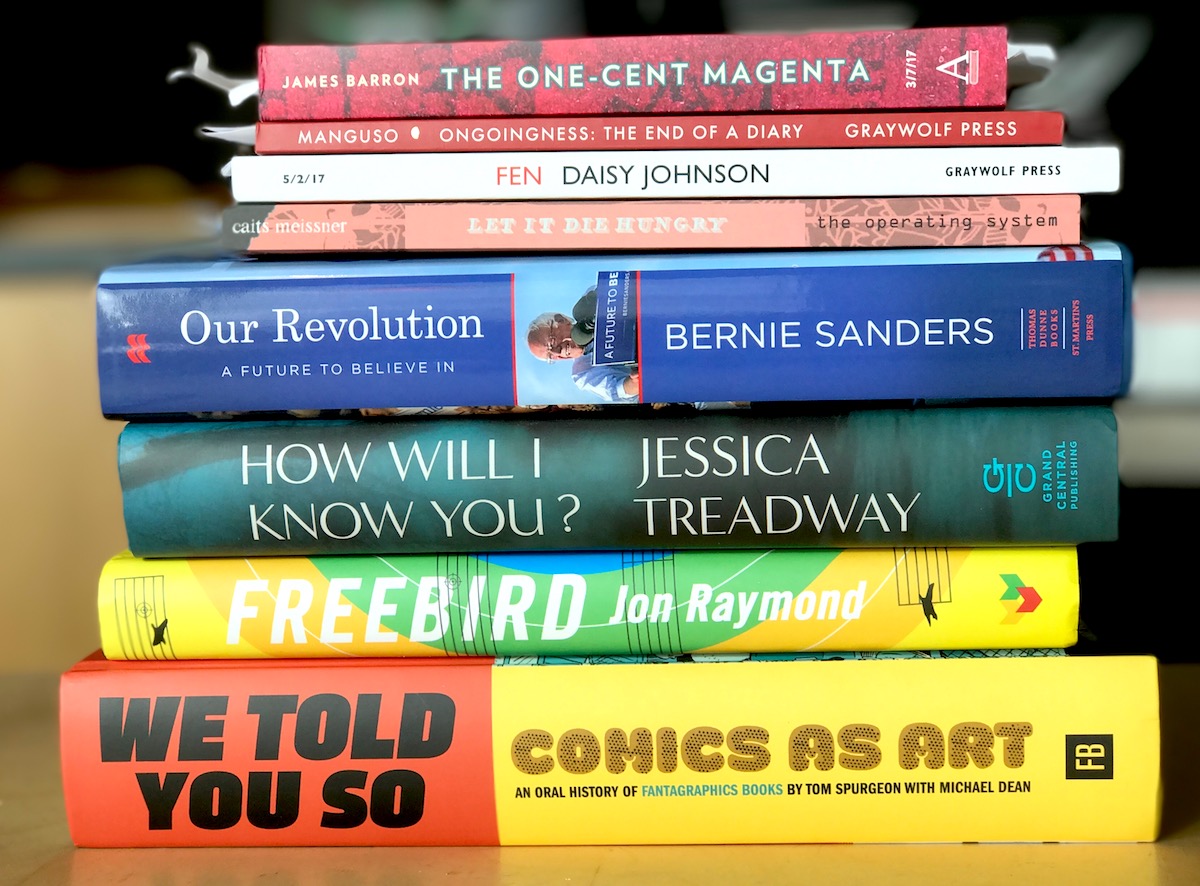Why Elliott Bay Book Company is one of the best bookstores in the world
I arrived in Seattle on May 4th, 2000. I applied for a job at Elliott Bay Book Company two days later. My first day at Elliott Bay Book Company was May 15th. I cannot express how important being hired at Elliott Bay was for me, what it did for my life. I had worked at a Borders in Boston for years, but Elliott Bay was, quite obviously, something different. It was more serious than Borders, felt more like a place of worship. While customers at Borders always treated booksellers with scorn, the customers were nicer, more deferential to booksellers at Elliott Bay; they respected our knowledge and were interested in what we had to say. And the reading series, with an average of at least one event per day, meant that even the newest booksellers interacted with world-class authors. (On May 17th, I worked at a Sherman Alexie reading from The Toughest Indian in the World at Town Hall Seattle. He was incredibly gracious to all the booksellers. I also worked readings with Chuck Palahniuk, Dave Eggers, and David Sedaris that year, all of whom were almost impossibly nice.)
There is an understanding when you come to work at Elliott Bay that you’re working at one of the best bookstores in the world. And though the pay was not remarkable — better than Borders, but in line with non-commission retail work — you got to spend your days in one of the most beautiful bookstores in the world. (And the 40 percent staff discount and endless supply of free advance reader’s copies probably saved me thousands of dollars a year in book purchases I would’ve made if I worked anywhere else.)
Because it’s not tied to a corporate chain, it’s very easy for booksellers to make their mark at Elliott Bay. Humans, and not algorithms, order the books that make up the store. Sections are always evolving and growing. It’s not uncommon for a bookseller at Elliott Bay to champion a book so passionately that a publisher will order a new printing of the title based on the sales bump out of Seattle. Publishers will court Elliott Bay booksellers because they understand how much their approval means.
More than the books on the shelves, the people make the bookstore what it is: though Elliott Bay always has its share of enthusiastic young staffers, many booksellers have been with the store for decades. Store manager Tracy Taylor has led Elliott Bay through three owners, the Mardi Gras Riots of 2001, the Nisqually Earthquake, and the move from Pioneer Square to Capitol Hill. Receiving manager Erica Dorfman has shepherded uncountable millions of pounds of books through the store. Rick Simonson founded the reading series and has overseen its growth with Karen Maeda Allman, formerly of Red and Black Books. Head buyer Holly Myers has passionately tended to the kids’ section for decades. Store owner Peter Aaron dedicated his life to the vision that Walter Carr brought into the world over four decades ago; he kept the store alive when nobody else would, and his decision to move Elliott Bay to Capitol Hill breathed new life (financial and conceptual) into the business.
I’m obviously biased, but Elliott Bay is, to my mind, the best bookstore in the world. Plenty of people swoon over Powell’s, but I’ve always thought it to be just too damn big. I’ve lost days to browsing the stacks at Powell’s, but I just can’t wrap my head around the store because there’s too much of it. Elliott Bay is big enough to get lost in but just small enough to comprehend. It’s human-sized, and in an age when you can get whatever you want online, that curation is important.
The selection at Elliott Bay is obviously huge, but it’s also stocked with the right books, chosen and shelved by a human being who loves books. That’s not the kind of thing you can quantify, but it is something you can recognize when you see it. When a book comes to you through the hands of so many good people, that book somehow carries more value. It gives the book a continuity and it gives the reader a community. This is the kind of power that can change a life.
The Sunday Post for November 20, 2016
Obama Reckons With a Trump Presidency
This David Remnick piece has received a lot of, rightful, attention this week. Imagine being one of the most capable, measured, and successful presidents of the modern age, and handing off to the hot gilded mess approaching the front gates. The horror.
But Obama has remarkable statesmen like resolve, and as he told a crowd recently, "I’m going to be constrained in what I do with all of you until I am again a private citizen.”
This quote, especially, is telling:
The official line at the White House was that the hour-and-a-half meeting with Trump went well and that Trump was solicitous. Later, when I asked Obama how things had really gone, he smiled thinly and said, “I think I can’t characterize it without…” Then he stopped himself and said that he would tell me, “at some point over a beer—off the record.”
I wasn’t counting on that beer anytime soon. But after the sitdown with Trump, Obama told staff members that he had talked Trump through the rudiments of forming a cabinet and policies, including the Iran nuclear deal, counter-terrorism policy, health care—and that the President-elect’s grasp of such matters was, as the debates had made plain, modest at best. Trump, despite his habitual bluster, seemed awed by what he was being told and about to encounter.
What’s the Use of Regret?
A professor of philosophy at St. Olaf College, Gordon Marino asks looks into the idea of regret and why we might need it.
Some thinkers have portrayed regret as a humanizing emotion. The 20th-century moral philosopher Bernard Williams pointed out that, in instances where a person hurts another through no fault of her own (to use his example, a truck driver who runs over a child), we still expect her to feel remorseful. She will feel the weight of the event more intensely than any spectator. Other people, Williams writes, will try to comfort her, “but it is important that this is seen as something that should need to be done, and indeed some doubt would be felt about a driver who too blandly or readily moved to that position” of comfort.
Others hold the commonsense view that regret over a past event you can do nothing about is a waste of time when you can actually do something instead.
"Music Confounds the Machines"
The one and only, musician and producer extraordinaire, T Bone Burnett gave a keynote address to AmericanaFest
This country has been led by artists from Thoreau and Emerson through Walt Whitman to Woody Guthrie, through Thelonious Monk and Charlie Parker, to Presley and Dylan to The Last Poets and Kendrick Lamar. The Arts have always led the Sciences. Einstein said that Picasso preceded him by twenty years. Jules Verne put a man on the moon a hundred years before a rocket scientist did. Medieval stained glass windows are examples of how nanotechnology was used in the pre-modern era. Those artists were high technologists, and many other things- they were aestheticians, ethicists, conjurers, and philosophers, to name a few.
They took risks. Risks a technocrat could never take. Artists risk everything in everything they do. Risk is what separates the artist from the artisan. Art is not a career, it is a vocation, an inclination, a response to a summons.
Theranos Whistleblower Shook the Company—and His Family
The Theranos whistleblower is the grandson of former secretary of state, George Schultz. This is a fascinating look inside power, companies, and families. Great reporting from John Carreyrou at the Wall Street Journal.
After working at Theranos Inc. for eight months, Tyler Shultz decided he had seen enough. On April 11, 2014, he emailed company founder Elizabeth Holmes to complain that Theranos had doctored research and ignored failed quality-control checks.
The reply was withering. Ms. Holmes forwarded the email to Theranos President Sunny Balwani, who belittled Mr. Shultz’s grasp of basic mathematics and his knowledge of laboratory science, and then took a swipe at his relationship with George Shultz, the former secretary of state and a Theranos director.
“The only reason I have taken so much time away from work to address this personally is because you are Mr. Shultz’s grandson,” wrote Mr. Balwani to his employee in an email, a copy of which was reviewed by The Wall Street Journal.
Comp - Kickstarter Fund Project #46
Every week, the Seattle Review of Books backs a Kickstarter, and writes up why we picked that particular project. Read more about the project here. Suggest a project by writing to kickstarter at this domain, or by using our contact form.
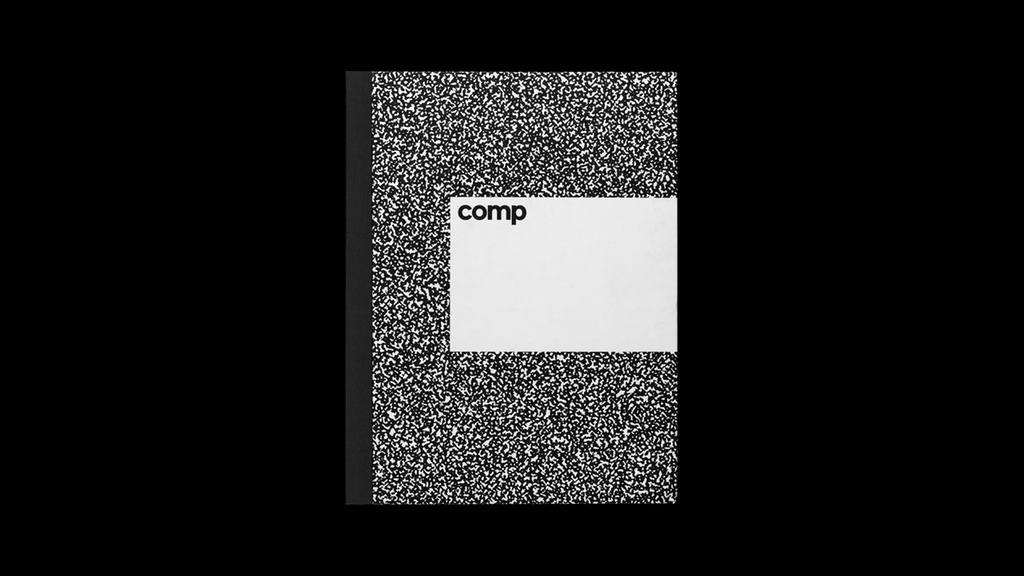
What's the project this week?
comp. We've put $20 in as a non-reward backer
Who is the Creator?
What do they have to say about the project?
comp is a redesign of the classic composition notebook––made for the 21st century.
What caught your eye?
Maybe it's just that I'm a sucker for a nicely reconsidered thing, but I think these re-examined comp notebooks are pretty cool. The designer put a ton of time into imagining a superior version of something utilitarian. This is something designers do, taking utility objects and refining them. To people who love design, this is a kind of sport. To people who hate design, they scratch their heads and wonder why you'd spend $19 on something you could buy at the local store for $3.
But they're not the same, are they? The ones from the store up the street are on cheap wood-pulp paper that will fade over time. There is, of course, a pleasure in the lowbrow, in enjoying utility. This is not about that. This is about a refined product, made nice and presented in small batches. This is about a mix of high and low, and an expression of where a person's particular obsession can lead.
Why should I back it?
Personally? I'd do it for the tote bag, because it's pretty sweet. A good notebook is always handy, and these, as lay-flat with the nice paper, would be perfect to write a story or a book in. If you're buying expensive notebooks with little elastic bands around them, perhaps try one of these instead?
How's the project doing?
They're 106% funded, so doing great. You're guaranteed a notebook, if you order one.
Do they have a video?
Kickstarter Fund Stats
- Projects backed: 46
- Funds pledged: $920
- Funds collected: $720
- Unsuccessful pledges: 2
- Fund balance: $120
Book News Roundup: Donate your used books to Pocket Libraries tomorrow
- Tomorrow is the Seattle 7 Writers Holiday Bookfest, which I wrote about for this week's Literary Event of the Week column. This is a great event and you should go, for all the reasons I explained. However, I made one error in the column that I want to amend here: I wrote... "...And if you’d like to make your neighborhood a more literate place, feel free to bring some 'gently used books,' which Seattle 7 Writers will then distribute to little free libraries around the city." That is actually slightly wrong: Seattle 7 Writers will definitely accept your used books, but they will instead use them for their terrific Pocket Library program, which is even better than donating them to Little Free Libraries. Here's what the Pocket Libraries are, from their own website:
Pocket libraries at a wide variety of sites provide invaluable reading material for women, men, and children who are currently without bookshelves of their own. Since 2010, we have donated over 30,000 books to local shelters, food banks, literacy organizations, recovery and counseling sites, and detention centers.
I regret the above error. Please give to Seattle 7's Pocket Libraries if you can.
While we're referring back to old posts, that British Amazon ad about religious tolerance I was talking about a couple days back has finally been made available to American audiences.
Does the world need more hatchet job book reviews? DJ Taylor at the New Statesman seems to think so.
Is it time to retire the phrase "graphic novel?" Glenn Weldon at NPR seems to think so.
The Help Desk: Perfection is overrated
Every Friday, Cienna Madrid offers solutions to life’s most vexing literary problems. Do you need a book recommendation to send your worst cousin on her birthday? Is it okay to read erotica on public transit? Cienna can help. Send your questions to advice@seattlereviewofbooks.com.
Dear Cienna,
This is not strictly a NaNoWriMo question, but maybe it will apply to some of the folks writing their novels this month: When I'm writing fiction, I can't let go of a sentence until it's perfect. I'm physically unable to move on and fix something in edits. It sometimes takes me a month to write a paragraph. And it's always a spectacular paragraph, if I do say so myself. But at this pace, I'm not going to finish my first novel until I'm 68, and I'd rather not do my first book tour as a retiree. Any tips on moving past the imperfect to get to the good?
Needs Perfection, Woodinville
Dear Needs Perfection,
I have the same problem when I'm penning therapeutic revenge limericks about my enemies – although in my defense, it is extremely difficult to capture the insult of a friend stealing Les Schwab tire coupons from your home in anapestic meter, especially when that friend's name is Verdiana. What the fuck rhymes with Verdiana? Nothing, that's what.
We are in a rut, you and I. A rut that in my case was caused by driving on bald tires (Verdiana, you cow). You can't let go of a paragraph until it's "perfect" and I can't let go of a limerick until it ends with someone being metaphorically beaten with a tire iron in perfect rhyme.
What we both need is a change of approach. I'm assuming you typically write on a computer – try writing with pen and paper instead. I've found that it's harder to fixate on words on a page because editing them is such a messy process. Writing on paper feels like more of a first draft; our brains have been conditioned through years of school to know that writing by hand is both spontaneous and incomplete.
Here's another trick that will put your obsessive perfectionist tendencies to better use: Work on creating a detailed outline of your entire book instead of creating perfect paragraphs. You must realize that much will be cut in the editing process, so why waste your time ensuring they're perfect now? Get the structure in place and then spend your time filling in the details.
As for me, likely I will have to give up on my limerick and resort to an old-fashioned form of revenge: stripping Verdiana's car of everything of value and donating the pieces to Jalopy Jungle. Perhaps after that, I can find it in my heart to send her an "I forgive you" limerick, instead:
You stole my coupons, you cow
An insult I cannot allow
In lieu of wishing you dead
I stripped your Ford Taurus instead
Great news: I forgive you now.
Kisses,
Cienna
Portrait Gallery: Michelle Tea
Each week, Christine Marie Larsen creates a new portrait of an author for us. Have any favorites you’d love to see immortalized? Let us know

Friday November 18th:
As Sarah Galvin noted in her excellent review, Michelle Tea is an iconic memoirist and queer sex symbol. Her newest book, Black Wave, is a memoir with a dystopic novel laid over the top, which kind of resembles the world in which we live right now. Tea is joined by memoirist Donna Kaz and musician Jordan O’Jordan.
Fred Wildlife Refuge, 128 Belmont Ave. E., 322-7030.
http://www.hugohouse.org. Free. All ages. 7 p.m.
The Future Alternative Past: our inaugural science fiction, fantasy, and horror column
New column! New Every month, Nisi Shawl is going to present us with news and updates from her perch overlooking the world of science-fiction, fantasy, and horror. Welcome Nisi!
Hello from your new skiffy columnist! I’m very gratified that I’ve been asked to provide you with monthly doses of clear-eyed science-fiction-fantasy-and-horror analysis, accompanied by the lamentation, kvelling, and Inside Baseball-like scuttlebutt you’d expect from a longtime reader and writer of that sort of thing. I promise to guide both trufen and neos (if you don’t know who those terms describe, you’re the latter) through the fantastic genres’ winding byways in the most pleasurable and interesting manner possible. In addition to my more general genre outpourings I’ve been charged with noting any upcoming conventions you may be interested in, and bringing you brief looks at recently published books.
Let’s begin with the conventions. Why?
Well, one major difference between science fiction/fantasy/horror (abbreviated hereinafter as SFFH) and other literatures is the communitarian legacy of early science fiction conventions. Damon Knight and the Futurians — a science fiction fan club rather than a surf rock band — organized the first World Science Fiction Convention, or Worldcon, way back in 1939. Though frequently eschewed by people of color, who can feel unwelcome in some of SFFH fandom’s whiter iterations, conventions (aka “cons”) have formed the genre’s powerful exoskeleton for almost 80 years now. Admittedly there were a couple of decades when falling con attendance rates were taken as predictors of SFFH’s fast-approaching demise. And many of those who did attend during the late 70s, the 80s, and even the early 90s, were as grey as they were white, leading to the expectation that con-going fandom as an institution would die of old age.
Lately, though, newer cons such as San Diego Comic-Con have sprung into existence. Appealing to a broader and often younger demographic, they embrace art forms reviled by some trufen (SFFH fandom’s hardened nerdcore): comics, movies, and even cartoons!
Though there’s no doubt some overlap in their memberships, two good examples of what I’m talking about can be found a couple hundred miles south of Seattle, in Portland, Oregon. By the time you read this, Orycon 38 (November 18 - 20, 2016) will be underway or over. As the number indicates, this is the 38th consecutive Orycon convention. I’ve attended quite a few. The panels, workshops, author signings, dances, freebie tables, art show, and vendor areas I’ve grown used to at other cons are always in evidence, with local literary luminaries supplementing the presence of national and international Guests of Honor such as Peter S. Beagle, Octavia E. Butler, and Steven Barnes.
But though you're probably not going to make Orycon, you’ve still got a good shot at attending Newcon PDX 5 (December 30, 2016 - January 1, 2017). Again as evidenced by the number, this is Newcon PDX the fifth. I’ve never been to even one of these. Events promised on the website range from a Cosplay Contest to a Swimsuit Cosplay Contest (“cosplay” is costuming based on characters found in popular books and shows), from gaming to tabletop gaming, from karaoke to a “Lip Sync Battle Royale.” As the self-proclaimed convention for “every flavor of nerd,” Newcon PDX of course offers panels, too, as well as special areas for vendors and artists. Photos of past attendees show a crowd with a hearteningly diverse racial make-up.
This last point is a great one because the historic whiteness of con-going fandom has been damaging — to POC who read and wrote and acted in SFFH works but felt unwelcome in its social spaces, and also to fandom as a whole, since they’re thus denied firsthand experience of our secret superpowers — or, to put that less fancifully, our perspectives and backgrounds. In 2009’s RaceFail, our participation in social media made it impossible for our existence to be denied, and POC also developed our own virtual and IRL safe spaces: the Carl Brandon Society advocated for them and organized panels on how to increase inclusivity at cons in particular and within fantastic literature as a whole, while groups such as the State of Black Science Fiction carved out online spaces for nerd-of-color community-building. Then, in 2010, Kate Nepveu ran her first auction to raise funds for Con or Bust, a nonprofit she created to offer scholarships to self-identified POC who want to attend cons. At first under the umbrella of the Carl Brandon Society and now on its own, Con or Bust has raised and distributed tens of thousands of dollars. That’s sadly still very necessary, as my write-up of the 2015 James Tiptree, Jr. Symposium at Eugene’s University of Oregon shows. Perhaps this year’s symposium, held December 2nd and 3rd in honor of writing goddess Ursula K. Le Guin, will be a bit more variegated.
Recent books recently read:
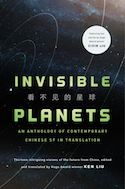
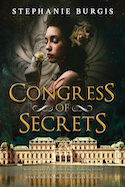
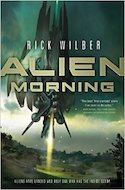
Thursday Comics Hangover: Nerd culture stops eating itself
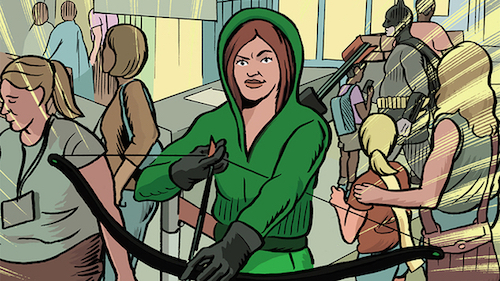
Imagine if cosplay was a thing in the early 1990s. Now imagine that a Fantagraphics cartoonist at the time — Dan Clowes, maybe — made a comic about people who dressed up like superheroes at comics conventions. You could practically imagine the scorn steaming off the page, can’t you? The 1990s alternative comics scene was such a self-consciously self-reflexive organism that it could only refer to comics and nerd culture by mocking it.
Recently, Fantagraphics published a book by Dash Shaw titled Cosplayers. It’s about a pair of nerdy young women — they evoke the leads of Clowes’s Ghost World — who forge a path through nerd culture. And while it would be a gross mischaracterization to call Cosplayers a celebration of nerd life, it’s certainly a far cry from the reflexive hate for all things geeky that you found in the alternative comics scene of the 90s.
The young women in Cosplayers are bored, so they start making films: they record themselves from a great distance, guerilla-style, having interactions with unknowing participants. Then they dub in dialogue over the video. It’s creepy and uncomfortable, but it scores them dozens of views on YouTube, so they keep at it.
Eventually they visit Tezukon, an anime convention in Richmond, Virginia, and a spray of discussions about nerd culture breaks out, like this interaction between a man and a woman at a cosplay contest:
Half of these aren’t from anime.
So?
This isn’t San Diego Comic-Con. It’s an anime con, and Tezuka-specific. I bet these people don’t even know who Tezuka is.
Don’t be an ass.
I’m being a fan!
No you’re not. Real fans love characters. They don’t nitpick about the artists. Chill out.
Another character, once the convention is done, muses, “I feel like the nerdiest thing in the world is to be a jock right now.”
Only one character in Cosplayers — a self-important anime expert — comes across as far too broad. The passages where he pisses in a potted plant or sleeps in a filthy alley are played for laughs, but they feel more like angry mockery than anything else in the book. Perhaps it’s intended to be a commentary on an outmoded style of fannish gatekeeping, but it just comes across as cruelty for its own sake. Every other character has an opportunity to express more than one dimension to their humanity.
The climactic story in Cosplayers works on multiple levels. It’s a critical appreciation of Jack Kirby’s truly bizarre 2001: A Space Odyssey comics adaptation, a story about a bizarre interaction with someone who has taken fannishness to an unhealthy level, and a celebration of collectible comics as semi-holy artifacts. Shaw has added layers of complexity to alternative comics’ relationship to mainstream comics, and in so doing he highlights the strengths and weaknesses of both approaches. It honors what comes before, even as it tears down the past and builds bridges to an uncertain future.
David Sedaris to workshop his upcoming book at Broadway Performance Hall
If you ever attend a David Sedaris reading, I suggest you watch him closely. You’ll see that as he reads, he keeps a pencil in his hand and he makes notations on the text. Sometimes if you pay close attention to his hands, you can see him cross out a word that he stumbles on, or add a word when an improvisation works particularly well. When you attend a Sedaris reading, you’re not just watching a performance — you’re taking part in an editing session. Even if the pieces were published in the New Yorker or in books, he still works on them; refining, polishing, making them better. It’s fascinating to watch.
Early next year, Seattle is going to get an even bigger window into his writing process. Before he publishes a new book, Sedaris always workshops his manuscript before a live audience for a solid week. This is an intensive part of his editing process, and it and helps him perfect his performance. Think of it, maybe, as a preview reading.
Next summer, Sedaris is publishing a new book titled Theft By Finding. The week of January 14th, he’ll be doing a weeklong stand in Seattle at Broadway Performance Hall, reading and polishing Theft By Finding in eight workshops before a live audience. Each workshop will include a question and answer session, which will likely be extra-intimate given the size of the hall.
This is a rare window inside Sedaris's process, and an opportunity to experience his next book before the rest of the world. If you’re interested in the art of writing and editing, I heartily recommend you attend more than one of these workshop readings. It will give you an opportunity to look into the process of a meticulous writer. That’s the kind of education you can’t pick up in a creative writing MFA course.
Theft By Finding will collect short and long pieces from Sedaris’s diaries, which he has fastidiously kept since the late 1970s. Last night, in front of a sold-out crowd at Benaroya Hall, he announced that he turned in the draft of Theft By Finding to his publisher a few days ago and that right now, the draft stands at over 700,000 words. (By comparison, his most recent book was a little over 50,000 words.) He said this book may be split into two or more volumes, depending on how his editors — and audience — respond to the work. Seattle will have a part in determining what the book will look like. I expect tickets to go quickly for this one; they’d make great Christmas gifts for someone in your life.
Your Week in Readings: The best literary events from November 16th - November 22nd
Wednesday November 16th: WordsWest Literary Series
This West Seattle-centric reading series features Imani Sims (whose poem “Allure” begins “She was perfect pitcher,/Cooled glass and ice center”) and Alma García, a writer of short stories (and, recently, a novel) who writes about the Latinx experience and what an appropriate size would be for a “dog-sized” dog. C&P Coffee Co., 5612 California Ave. SW, http://wordswestliterary.weebly.com. Free. All ages. 7 p.m.
Thursday November 17th: Dock Street Salon
This reading series brings fine literary writers to the beautiful neighborhood bookstore, Phinney Books. Tonight’s readers are novelists Tobias Carroll and Jarret Middleton, and short story author Matthew Simmons, who is the author of the new collection The In-Betweens. Simmons writes about road trips and jackalopes and black metal. Phinney Books, 7405 Greenwood Ave. N., 297-2665, http://phinneybooks.com. Free. All ages. 7 p.m.
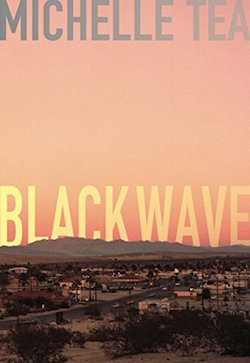
Friday November 18th: Michelle Tea, Donna Kaz, Jordan O’Jordan
As Sarah Galvin noted in her excellent review, Michelle Tea is an iconic memoirist and queer sex symbol. Her newest book, Black Wave, is a memoir with a dystopic novel laid over the top, which kind of resembles the world in which we live right now. Tea is joined by memoirist Donna Kaz and musician Jordan O’Jordan. Fred Wildlife Refuge, 128 Belmont Ave. E., 322-7030. http://www.hugohouse.org. Free. All ages. 7 p.m.
Saturday November 19th: Seattle Seven Holiday Bookfest
See our Event of the Week column for more details. Phinney Neighborhood Center, 6532 Phinney Ave, http://seattle7writers.org. Free. All ages. 3 p.m.
Sunday November 20th: Run the Red Lights Reading
With his thoughtful, funny poems, Ed Skoog was one of the best writers in Seattle. Then he had to move away. But this city still fucking loves him to pieces. Today, he debuts his new title from Port Townsend publisher Copper Canyon Press with a signing at Seattle’s best (and only, but still best) poetry bookstore. Open Books, 2414 N. 45th St., 633-0811, http://openpoetrybooks.com. Free. All ages. Noon.
Monday November 21st: Extreme Makeover and Every Heart a Doorway Reading *
Dan Wells’s newest fantasy novel is titled Extreme Makeover, and it’s about an anti-aging hand cream that “overwrites the DNA of whoever is wearing it.” Wells reads with novelist Seanan McGuire, whose Every Heart a Doorway is about a boarding school for magical children that is plagued by a serial killer. University Book Store, 4326 University Way N.E., 634-3400, http://www2.bookstore.washington.edu/. Free. All ages. 7 p.m.
Tuesday November 22nd: Habitat and Ancestor Reading
Simon Roy, the comics artist behind the new sci-fi series Habitat, signs the first collection of his book, which is about an orbital space station that is hurtling toward civil war. Roy is joined by writer Matt Sheean and artist Malachi Ward, who will sign their new collected comic Ancestor, about a mind-computer interface. Elliott Bay Book Company, 1521 10th Ave, 624-6600, elliottbaybook.com . Free. All ages. 7 p.m.
Harry Farley at Christian Today reports that Amazon's new advertisement features a vicar from the Church of England and an imam getting along. I'm sure it delivers a terrific message of togetherness, but I'll have to take Farley's word for it:

You're not ready for Amazon-level religious tolerance, America.
Literary Event of the Week: Seattle 7 Writers Bookfest

In the shadow of this disastrous election, it’s almost impossible to think about Christmas. But whether you’re ready or not, the holidays are coming, and there are lots of people you love out there in the world who deserve a little happiness in their lives. Books are the best gift: they’re deeply personal, they help us empathize with each other, and they’re so much more meaningful than, say, a juicer. And books are especially the best gift for our current state of anxiety—they make us better, they’re fairly modest in price, and after they’re read they can be passed on to others in a free exchange of ideas. They’re democratic, they’re rewarding, and they provide a much-needed sense of escape.
So since we’ve decided you’re giving out books for the holidays this year, the question remains: how do you get them? Obviously, rather than buying them at a chain bookstore, you should support your local independent bookseller. Now more than ever, we want to keep our money in the neighborhoods where we live, supporting jobs in the area rather than airlifting our cash out of the local economy.
This Saturday, November 19th, local writers organization Seattle 7 Writers are teaming up with great independent bookseller Phinney Books to take over the Phinney Neighborhood Center to create a one-of-a-kind Seattle-centric book festival called the Holiday Bookfest. Proceeds benefit the Phinney Neighborhood Association and the Greater Seattle Bureau of Fearless Ideas, a great nonprofit youth writing organization. And if you’d like to make your neighborhood a more literate place, feel free to bring some “gently used books,” which Seattle 7 Writers will then distribute to little free libraries around the city.
Inside the Holiday Bookfest, you’ll find 25 area writers, including fantasy novelist Terry Brooks; the incredible New York Times columnist and historian Tim Egan; fiction writers Jim Lynch, Garth Stein, and Carol Cassella; short story writer Donna Miscolta; and poet Ed Skoog. They’ll be there to talk, sign books, and make recommendations for everyone on your list. The only gift better than a book is a personalized book, after all, and this is your best chance to get a wide array of titles all in one stop.
Additionally, the latter half of the show will feature a lightning-round reading stage with local authors so you can try out new books in readings of 15 minutes or less before you buy. Readers include young adult novelist Sean Beaudoin, historical fiction author Megan Chance, and Steve Arntson, who is one of the most underrated writers of middle-grade fiction in Seattle.
Books indisputably make the world a better place. Writers are an important part of Seattle’s artistic community. And we could all use a little time with our good-hearted neighbors right now, to remember why we choose to live where we do, and the beautiful, brilliant ideas that spring from the city around us.
Phinney Neighborhood Center, 6532 Phinney Ave, http://seattle7writers.org. Free. Saturday, November 19th. All ages. 3 p.m.
Reading Through It: Join us for a discussion of how to move forward in Donald Trump’s America
In the wake of Donald Trump’s election, it should be obvious to everyone that the Urban Archipelago concept promoted by thinkers like Richard Florida — the idea of cities as strongholds of liberal progress — was a dead end. As liberals spent twelve years building cities into citadels of progressivism and waiting for national demographics to shift our way, we allowed the Rust Belt to erode and we fostered an us-versus-them relationship with rural America. This is probably the greatest political miscalculation of our time. We learned last week that when we’re not trying to win over the whole country with our policies and our messages, we’re setting ourselves up for…well, the world outside our window.
This is not a call for weak-kneed centrism; quite the opposite. I’m saying that progressives need to stop facing inward. There is an eager audience for good progressive policy in every single state in this union. On the same night that Donald Trump won the election, four out of four statewide initiatives to raise the minimum wage passed by popular acclaim. Three out of four statewide initiatives favoring commonsense gun laws won. The fact is that states which voted for Trump also voted for progressive ideas. People who twice voted for President Obama this year decided to vote for Donald Trump. It’s complicated.
I’m not naively suggesting that Trump ran a campaign built solely on economic insecurity. His campaign was racist and sexist, deeply divisive and hateful, and it is incumbent on those of us with privilege to protect and amplify minorities in Trump’s new bullying America. But what he did was he correctly identified America’s economic insecurity, and then he falsely framed economic vitality as an either/or question: either we get rid of these brown people or everything is lost. Progressives failed to counter that proposition with a meaningful message of inclusiveness and prosperity. Yes, some portion of Trump voters supported him specifically because they hate people of color and women; we cannot and should not seek the support of bullies and bigots — we should continue to call them out and shame them and hold them accountable for their monstrous words. But we absolutely need a better answer for Americans who feel abandoned and scared and forgotten than just telling them to move away from their families and to a coastal city.
So what’s the answer? How do we move forward? Well, let’s look to one of the great political successes of our time: we learned with same-sex marriage that what wins elections and definitively defeats bigotry is when people share their stories. When people come out to their coworkers, it's awfully hard for those coworkers to be against gay marriage. When you know people who are negatively impacted by draconian immigration laws, you're more likely to be against those laws. We’ve had great successes with the minimum wage and secure scheduling in Seattle because low-wage workers shared their stories in a way that upper-class tech workers could understand. Sharing our stories, and listening to the stories of others, is the best way to create meaningful change.
This is where you come in. If you’re looking for something to do to break this chain of fear and insularity, you can start by educating yourself. If you want to cultivate empathy and understanding in the world, you can share your knowledge and experiences, and listen to the knowledge and experiences of others. I firmly believe that humanity has devised no greater engine of empathy than books. Books are how we understand the world and share our experiences. Most great civic conversations begin with a book.
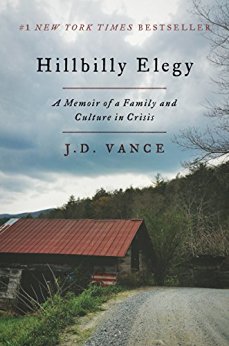
And so with that in mind, the Seattle Weekly and the Seattle Review of Books are teaming up with Third Place Books Seward Park for a project called Reading Through It, a monthly book club to examine and discuss the causes and effects of post-Trump America. The first Reading Through It will be on Wednesday, December 7th at 7 pm, and we’ll be discussing Hillbilly Elegy, J.D. Vance’s New York Times bestselling memoir about poverty-stricken white America. We’ll meet at Third Place at 7 pm on the first Wednesday of every month thereafter. Our second book discussion, on January 5th, will be centered around Claudia Rankine’s poetry collection Citizen: An American Lyric. Third Place will sell each month’s selection at 20 percent off for the month before the reading. But if you get the books through the library, that’s okay too; these are free events open to all who want to talk and to listen, and we’re eager for your suggestions for future discussion titles.
Things won’t improve if we revert to the impotent liberal outrage that followed the election of 2004. Relentless ridicule and scorn and smugness don’t work. Sharing righteous political memes on social media might drop a few milligrams of endorphins into your cerebral cortex, but it has absolutely no other effect on the world. What if, rather than confirming your beliefs on Facebook, you talk with your neighbors, admit what you don’t know, and listen to people who are different from yourself? That’s how things happen. You can’t shutter the doors and wait for things to change; you’ve got to open them wide and be ready to welcome people as they walk in. You can RSVP on the Facebook group for the event now. There’s a seat for you at our table; I hope you’ll join us.
Book News Roundup: An international publishing partnership, a Lannan Fellowship, and #BlackLivesMatter
Yesterday, Fantagraphics Books announced that they're entering into a partnership with young British comics publisher Breakdown Press. The Seattle-based publisher is bringing some (not all) of the very best of Breakdown's output to American bookstores and comics shops, starting with Anna Haifisch's book The Artist and Hayashi Seiichi's book Red Red Rocks and Other Stories 1967-1970. Breakdown's catalog looks very cool — a mix of international artists working in a variety of styles.
Congratulations to Seattle poet Don Mee Choi, who won a Lannan Literary Fellowship for Poetry. We loved her most recent book of poetry, Hardly War.
Did you know that the Seattle Public Library has a searchable collection of titles that have been tagged #BlackLivesMatter? It's true. Thank you for doing this, SPL. By making these books available and tagged, you're helping Seattle's African-American community and its allies find much-needed resources. This is terrific.
Donald Trump's election has spurred a number of Americans to buy subscriptions to magazines and newspapers. This does not count as Making America Great Again; Trump doesn't get credit for revitalizing print media by being a big asshole.
Today in depressing legal battles, Dr. Seuss's estate is suing a writer and artist for their Star Trek-themed Seuss parody book.
Dr. Seuss Enterprises, the California company that owns the rights to all the works of author and illustrator Theodor S. Geisel – better known as Dr. Seuss – have sued a Connecticut-based comic book company, ComicMix, as well as the company’s president for copyright and trademark infringement, and unfair competition. It’s all over a book called Oh, the Places You’ll Boldly Go! written by classic Star Trek scribe David Gerrold and illustrated by Ty Templeton.
A Filipino Restaurant
A Filipino restaurant is bone marrow
and vinegar boiling
perfectly over the sound
of the most dramatic Tagalog
soap opera you’ve ever been forced to watch.I come here, when I can afford it,
when my homesick can only be cured
by my mother’s handsThe server is a young woman,
possibly in her 20’s with a posture
that’s been carrying the weight of her father’s expectations.She calls me, “Ate” every time I come in.
It means older sister in Tagalog.I can tell by the way she responds
to her mother that she still lives at home,
because Filipino women without husbands
have no business being out on their own,
she wears a crucifix on her necklace
to remind her a man died for her once,
her priest, her mother,
her father, and her aunties
won’t ever let her forget it.And she doesn’t know.
But I’ve been there.
Wanted to believe that
I could behave and sit still.
Find a nice boy to marry
to shut my mom up and wear tradition
and religion on my wedding day,but I needed to be free.
And I wonder what young women
like this know about freedom.
What it’s like to not have a predetermined destiny.
To not always have to say the right thing,
and dress the right way
and be the dream
that someone else dreamed for you.But this glass house
contains a boy
with too many stones
and not enough heart to tell his mother he’s trans.
Because I swore I would never tell my mother.
Because she wouldn’t understand.Because this is will make the pot boil over.
And this young woman could’ve been my mother in past lifeThe woman behind the counter says,
“Hi Ate. how are you today?”I smile.
Hold back my painful desire
to tell her I’m different now.
I went and got free.
I am not your sister,
but I’m still part of the family.
But the smell of this adobo
is whispering my mother’s name
and I can’t unclench.My mother grips tradition
and Catholicism so tightly
she has no more knuckles for this.I do not correct her.
Continue this transaction like we normally would.Do not try to axe at the root
of this family tree we swing under
I decide to never tell my mother
I can’t be her daughter
Do not throw these stones from your glass house, boy
the only chain you have left
Don’t anger your ancestors
Don’t shame this family anymore
Do not come out again
Don’t do this to usSo, I do not correct her.
Instead I settle into this excuse
rather not uproot this tree from the groundRather not show her that she might be the one who is free
and
not me
We complete our business and she says, “Thanks Ate”
But I’ve been used to being free for too long.
My jaw shakes loose of the weight it’s been holding
dislocates from my mouth
and drops into the young woman’s hands“Kuya” I say.
which is a respectful title for
“older brother”.I do not expect her to catch me.
My muscle memory braces itself for the shatter
for the shards of stained glass
church windows I’ve just smashed.She says, “Have I been saying it wrong this whole time?”
And this is where I have to come out again.
A decision to make to erase the history we’ve created together in our connection
to erase my own history
or to be loyal to who I’ve beenI choose to be loyal.
I say, “no.”
Wait for the confusion, the hate, the back turned that I know so wellShe says, “Oh, Sige—Kuya”
I smile.
And wonder how I will tell my mother that I am still her child.
An amazing story of American sacrifice and duty
Sponsor Sandra Vea has brought her amazing biography of her friend, Masao, a Japanese-American solider in World War II, who fought some of the hardest battles in the hardest war, all while being under suspicion from his fellow soldiers.
We have a full chapter on our sponsor's page for you to read, and mark the dates November 19th, and February 25th, when Sandra will be appearing to talk more about the book in person. Look for full details on our sponsor's page.
Sponsors like Sandra Vea make the Seattle Review of Books possible. Did you know you could sponsor us, as well? Get your stories, or novel, or event in front of our passionate audience. There are some dates open perfect for pitching your product for the holidays. Take a glance at our sponsorship information page for dates and details.
The fascist within
Published November 14, 2016, at 12:05pm
If you're still reeling from the thought of President Trump, it's time to compose yourself. We must prepare to fight the fascist future.
Step 1: Visit, send an email to, or call your local independent neighborhood bookstore. Talk to the store owner. Ask how they feel about the prospect of a President Trump.
Step 2: Consider this tweet, from the owner of the world's largest bookstore:
Congratulations to @realDonaldTrump. I for one give him my most open mind and wish him great success in his service to the country.
— Jeff Bezos (@JeffBezos) November 10, 2016
Step 3: Ask yourself, which reaction best reflects your values? Who deserves your money more? Who will better invest your money in your immediate community, in people who are taking action against President Trump? Recall, these things matter. Clicking buttons on websites matter. Where you spend your money matters.
Step 4: Act accordingly.
Talking with Mary Thompson, one of Elliott Bay Book Company's newest employees

Our November Bookstore of the Month, Elliott Bay Book Company, is a store that prides itself on its history and its strong sense of continuity. But not everyone at Elliott Bay has worked there for decades. New booksellers start at the store all the time, and they make their mark pretty quickly. Mary Thompson started at Elliott Bay in mid-June. It’s her first bookstore job, though not her first literary job — she worked at the Hugo House doing front desk and events assistance before getting into bookselling.
Thompson works in the fiction and fitness sections, as well as helping with magazines, internet orders, and the readings team. What does she think of working at Elliott Bay so far? “I like the creative aspect,” she says. “I love writing and it seemed like being surrounded by books was a good option; Elliott Bay was kind of a second home. It made sense to work here.”
As a student at Seattle U, Thompson was interested largely in 20th century classics like Ernest Hemingway and F. Scott Fitzgerald. Working at Elliott Bay has made her aware of a whole contemporary universe of writers she never before gave much attention. “My interest in graphic novels is a lot higher than it used to be,” she says, for example. “Working at Elliott Bay, I feel like I’m just consuming so much. There’s a list of books growing that will never be completed.”
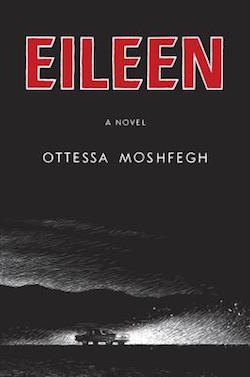
What books has she discovered since working there? She’s especially excited about Eileen, the novel by Otessa Moshfegh, which she calls “amazing.” “It’s all the things I’ve always liked about novels — it’s surprising and has such a unique voice.” Thompson likes that Eileen is “dark and its funny,” and that it features “a female narrator like I’ve never read before. It’s disgusting and morbid and I love it.” For graphic novels, she’s been reading Ta-Nehisi Coates’s Black Panther and The Arab of the Future and The Arab of the Future 2 by Riad Sattouf.
This is the time of year when Elliott Bay employees are asked to choose a handful of books to recommend for holiday gifts. Thompson picked Henri Cartier-Bresson: The Decisive Moment, a reissued version of a book by “the original street photographer.” She admits that it’s an “extravagant choice,” a huge and expensive book, but “if you’re gonna get someone a big gift, I think it’s the way to go,” Thompson says, calling it “the most beautiful book I’ve ever seen.”
Another book she chose to promote for the holidays originally seemed “too dark and too sinister” for the time, Thompson explains, but “now it seems the perfect choice:” James Thurber’s The Tiger Who Would Be King, illustrated by Joohee Yoon. “It’s about a tiger who wants to be king of the jungle and throws a coup, and everybody dies in it. It’s supposed to be funny, but it doesn’t seem very funny now. it just seems very stark and dark.” Thompson says its message, that “absolute power corrupts absolutely,” proved to be more apt than she expected.
Thompson is from a suburban California town. In 2008, the local Borders closed, and no new bookstore opened to take its place. She had to travel “far away” to get to a bookstore. That makes working at Elliott Bay a special kind of privilege for Thompson. “Just in general, the fact that it’s been around so long is phenomenal to me,” she says. “Seeing people who’ve lived here all their lives and know it as their neighborhood bookstore” is a rewarding feeling. She’s part of a community with roots, and she’s adding to that community’s future every day.
